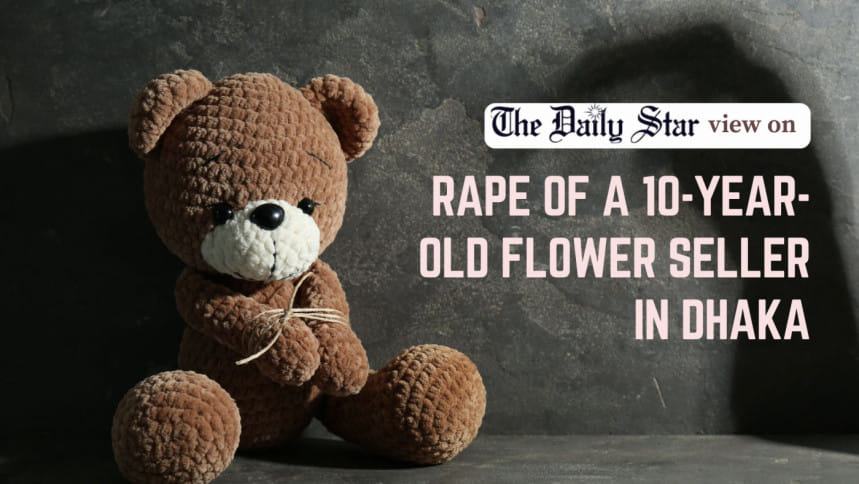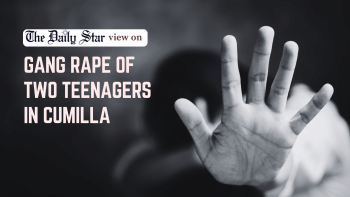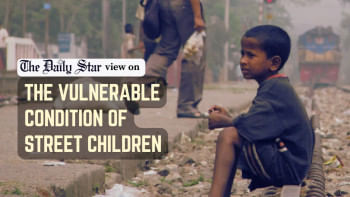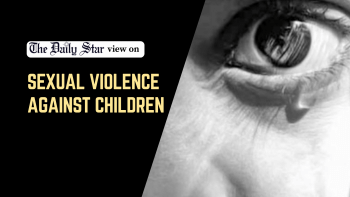Plight of street children still ignored

It is disheartening to see that our street children continue to be victims of all kinds of abuses, the latest reported incident being that of a youth raping a 10-year-old flower seller under Dhaka's Shahbagh Metro Rail Station on Wednesday. We have regularly written about the plight of this marginalised group, but are yet to observe any comprehensive initiative to address this issue. Neglecting these children implies that their lives are of little value, but an egalitarian society—one we all wish to achieve—has no place for such negligence.
According to a UNICEF study, as many as 34 lakh street children live without parental care in Bangladesh, leaving them extremely vulnerable to abuse. Many of these children sleep alone or in groups for safety, but even then, one-third face violence during sleep. As per a study by the Ministry of Social Welfare, 46 percent of female children experience sexual abuse, and a 2022 survey by the Bangladesh Bureau of Statistics (BBS) states that about 80 percent of street children face some form of harassment or torture. From inappropriate comments and physical contact to threats and exploitation, the victims of these heinous acts have no one to turn to.
About 36 percent of these children have never experienced any formal or informal education, according to the BBS survey. Furthermore, they don't have access to basic amenities and are forced to beg or do menial work to survive. All these point to systemic issues in our legal, institutional, and social structures; hence, ad-hoc measures cannot resolve this crisis. Although the 19-year-old charged with rape has been arrested, the extremely low conviction rate for sexual assault, the inaction of law enforcers, and societal tendencies to shame rape survivors prevent the child from getting the justice she deserves.
The interim government currently has great opportunities to introduce reforms in the sectors it oversees. While services like shelters can definitely help these children, they don't address the structural cracks. Mending the system will require a comprehensive legal framework surrounding child protection, a reformed police force, and a society that is sympathetic to the abused and marginalised. With the right safety nets, these children hold immense potential to contribute to the country's prosperity, but more importantly, they have the right to lead a dignified life, and the state has a duty to ensure that.


 For all latest news, follow The Daily Star's Google News channel.
For all latest news, follow The Daily Star's Google News channel. 










Comments